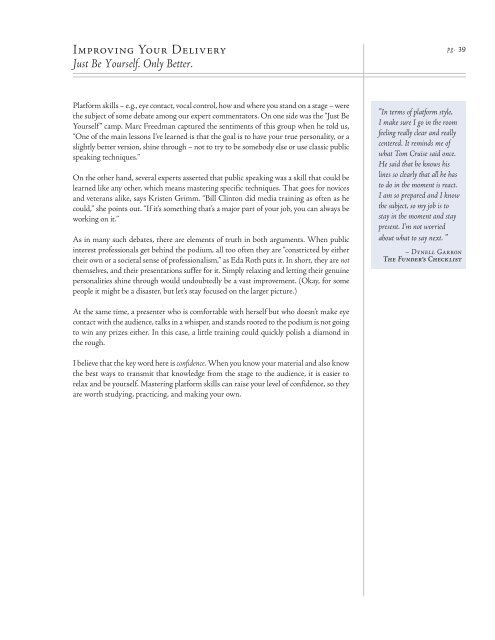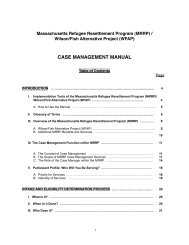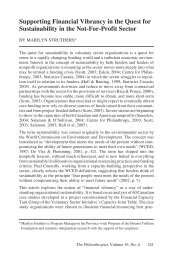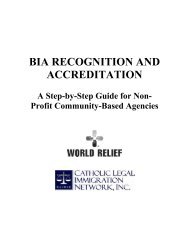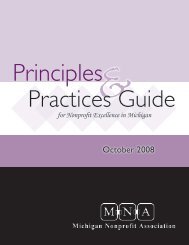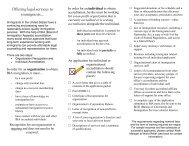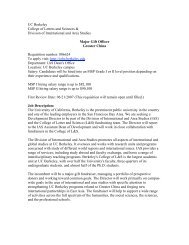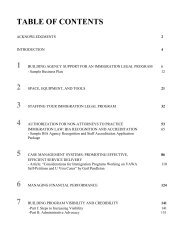Why Bad Presentations Happen to Good Causes - The Goodman ...
Why Bad Presentations Happen to Good Causes - The Goodman ...
Why Bad Presentations Happen to Good Causes - The Goodman ...
Create successful ePaper yourself
Turn your PDF publications into a flip-book with our unique Google optimized e-Paper software.
Improving Your Delivery<br />
Just Be Yourself. Only Better.<br />
Platform skills – e.g., eye contact, vocal control, how and where you stand on a stage – were<br />
the subject of some debate among our expert commenta<strong>to</strong>rs. On one side was the “Just Be<br />
Yourself” camp. Marc Freedman captured the sentiments of this group when he <strong>to</strong>ld us,<br />
“One of the main lessons I’ve learned is that the goal is <strong>to</strong> have your true personality, or a<br />
slightly better version, shine through – not <strong>to</strong> try <strong>to</strong> be somebody else or use classic public<br />
speaking techniques.”<br />
On the other hand, several experts asserted that public speaking was a skill that could be<br />
learned like any other, which means mastering specific techniques. That goes for novices<br />
and veterans alike, says Kristen Grimm. “Bill Clin<strong>to</strong>n did media training as often as he<br />
could,” she points out. “If it’s something that’s a major part of your job, you can always be<br />
working on it.”<br />
As in many such debates, there are elements of truth in both arguments. When public<br />
interest professionals get behind the podium, all <strong>to</strong>o often they are “constricted by either<br />
their own or a societal sense of professionalism,” as Eda Roth puts it. In short, they are not<br />
themselves, and their presentations suffer for it. Simply relaxing and letting their genuine<br />
personalities shine through would undoubtedly be a vast improvement. (Okay, for some<br />
people it might be a disaster, but let’s stay focused on the larger picture.)<br />
At the same time, a presenter who is comfortable with herself but who doesn’t make eye<br />
contact with the audience, talks in a whisper, and stands rooted <strong>to</strong> the podium is not going<br />
<strong>to</strong> win any prizes either. In this case, a little training could quickly polish a diamond in<br />
the rough.<br />
I believe that the key word here is confidence. When you know your material and also know<br />
the best ways <strong>to</strong> transmit that knowledge from the stage <strong>to</strong> the audience, it is easier <strong>to</strong><br />
relax and be yourself. Mastering platform skills can raise your level of confidence, so they<br />
are worth studying, practicing, and making your own.<br />
pg. 39<br />
“In terms of platform style,<br />
I make sure I go in the room<br />
feeling really clear and really<br />
centered. It reminds me of<br />
what Tom Cruise said once.<br />
He said that he knows his<br />
lines so clearly that all he has<br />
<strong>to</strong> do in the moment is react.<br />
I am so prepared and I know<br />
the subject, so my job is <strong>to</strong><br />
stay in the moment and stay<br />
present. I’m not worried<br />
about what <strong>to</strong> say next. ”<br />
– Dynell Garron<br />
<strong>The</strong> Funder’s Checklist


